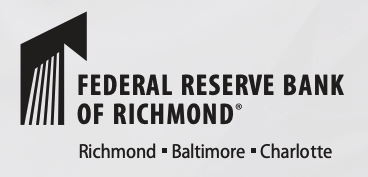Community Finance in East Baltimore: a Study of Phase One Redevelopment and Financing
This issue of Community Practice Papers focuses on partner organizations in East Baltimore and community development tools to address a neighborhood challenged by disinvestment.
Federal Reserve Bank of Richmond
September 2018
Home | Publications | Community Finance in East Baltimore: a Study of Phase One Redevelopment and Financing
Overview
This issue of Community Development Practice Papers focuses on a group of partner organizations in East Baltimore and the community development finance tools used to address a neighborhood challenged by disinvestment.
Community development finance includes funding sources from public, private and philanthropic sources and the methods by which a funding source may be used to leverage other sources. While the “deals” are often complex financial transactions, and new sources of capital continue to evolve, the role of organizational partners and funders may evolve in new and innovative ways.
The goal of community development investment is to create new opportunities in disinvested areas through affordable housing, small business development and jobs. In this example, organizations with a primary purpose to help meet the credit, housing and economic development needs of low- and moderate-income communities led a project by engaging other organizations to assume new roles and financial leadership.
Community development investment in East Baltimore can be distinguished from other large-scale urban redevelopment efforts because of both the combined economic, community and human development strategies designed to benefit the area residents, businesses and the surrounding communities, and because of the innovations in community financing between and among core partners.
To continue reading, download the article above or click here.
About the Authors
Jeanne Milliken Bonds, formerly the senior manager, Regional Community Development at the Federal Reserve Bank of Richmond, is now a Professor of the Practice, Impact Investment and Sustainable Finance in the Kenan-Flagler Business School and the Department of Public Policy at UNC-Chapel Hill.
Anne A. Burnett is the senior manager, Financial Institution Outreach at the Federal Reserve Bank of Richmond.
Emma Sissman was an intern from 2016–2017 in the Community Development department of the Federal Reserve Bank of Richmond.
Related Articles
Is North Carolina’s Attractiveness as a Migration Destination Waning?
Is North Carolina’s Attractiveness as a Migration Destination Waning?We are witnessing a re-balancing after the COVID migration surge or a fundamental shift in North Carolina’s attractiveness as a domestic and international migration magnet.White Paper by James H....
North Carolina at a Demographic Crossroad: Loss of Lives and the Impact
North Carolina at a Demographic Crossroad:Loss of Lives and the ImpactNorth Carolina’s phenomenal migration-driven population growth masks a troubling trend: high rates of death and dying prematurely which, left unchecked, can potentially derail the state’s economic...
WILL HURRICANE IAN TRIGGER CLIMATE REFUGEE MIGRATION FROM FLORIDA
Will Hurricane Ian Trigger Climate Refugee Migration from Florida?Thirteen of Florida’s counties were declared eligible for federal disaster relief following Hurricane Ian’s disastrous trek through the state (The White House, 2022). The human toll and economic impact...








